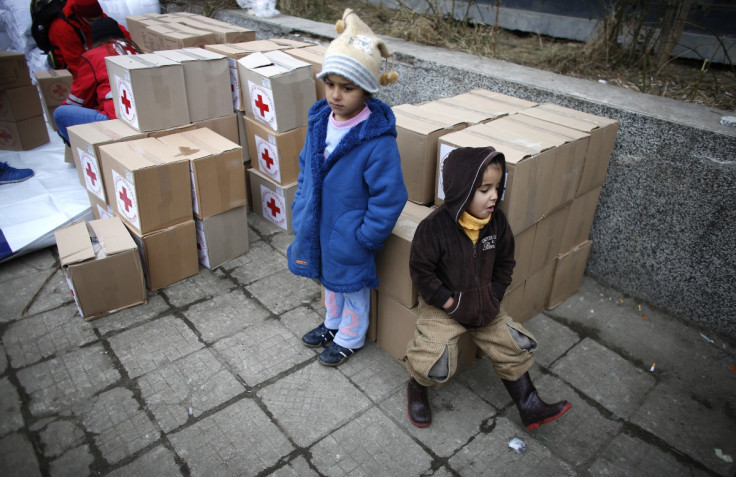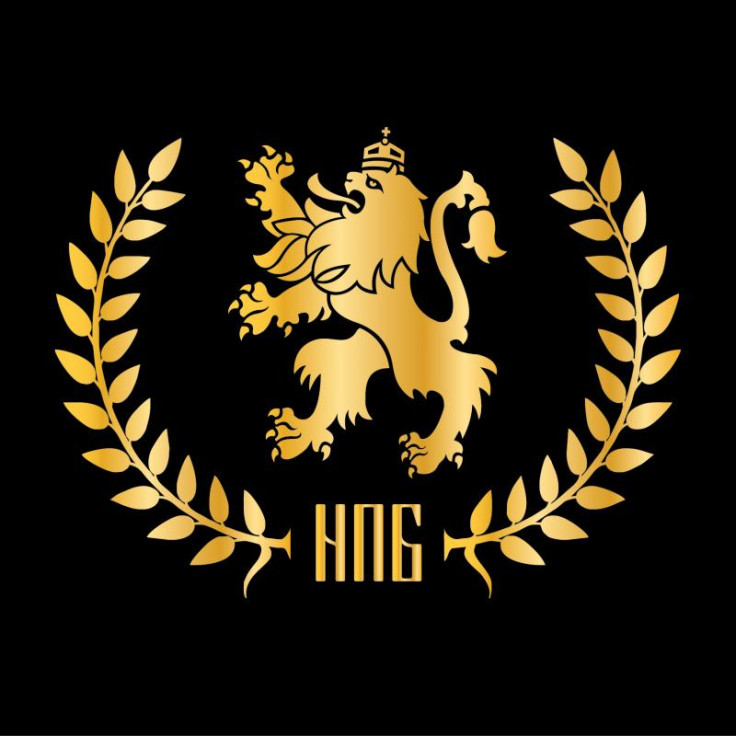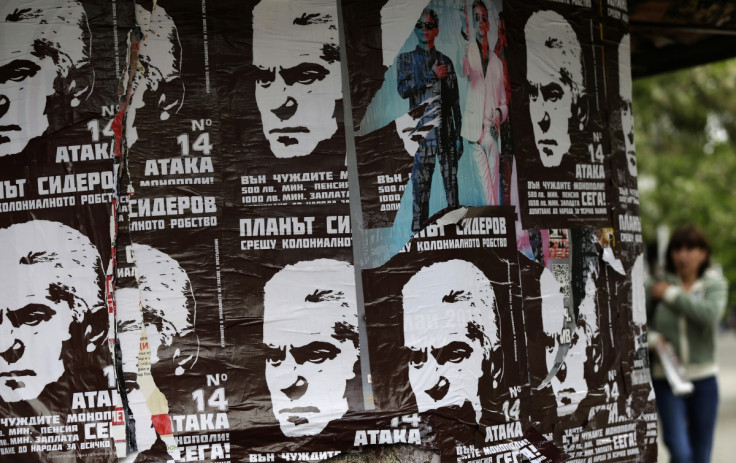The Bulgarian Golden Dawn: Nationalists Launch Attacks Against Syrian Refugees

Bulgaria nationalist groups have launched civil patrols to round-up migrants in the country in a hate attack strategy that is reminiscent of Greece's neo-Nazi Golden Dawn group.
The Balkan country has seen a surge in xenophobic attacks since a wave of refugees escaping from the horrors of the civil war in Syria, 2,000 km south of the capital Sofia, has entered via the Turkish border.
From June 2013, more than 10,000 refugees reached Bulgaria and human rights organisations expect tens of thousands to make the journey in the coming months.
The surge of nationalist sentiment, which led to the creation of the new Nationalist Party of Bulgaria, is fuelled by the government's lack of preparation, information and adequate response to the refugee crisis, according to Ruslan Trad, Syrian-Bulgarian blogger and founder of Forum for Arab Culture.
"Lack of information leads to aggression and fears. And these fears are used by nationalist factions," he told IBTimes UK.
"We have no clear information for the refugees: who are they, what's their ethnic and religious composition. Many of the Syrian refugees are Kurds who are looking outside Turkey – in Germany, Greece, UK, Sweden, etc..."
Sleeping outdoors

The biggest camp for asylum-seekers is in the city of Harmanli, around 300 km from Sofia. The camp was slated to take in only 500 people but now has more than 2,000 living tents. Refugees have no electricity and water and have to cope with weather conditions that include snow and temperatures at -3 Celsius.
"Thanks to the actions of activists and local people, we have now deliveries of food and clothing, but not enough ovens - for example," Trad said. "We need more medics, medicaments, pills."
The poorest member of the 28-strong EU, Bulgaria has struggled to provide even the most elementary shelter to the Syrian refugees. Doctors without Borders warned of the "disastrous lack of medical assistance" as hundreds of Syrians have to sleep outdoors due to the lack of capacity.
"Recently, refugees protested after the death of a 35-year-old Syrian man who was not provided medical aid after complaining of chest pain," Trad wrote in a blog post for the Muftah website.
The Bulgarian Golden Dawn

Shaken by internal problems and protest, Bulgaria found itself unable to cope with the refugees and that boosted nationalists' hopes in the country.
In November, neo-Nazi factions such as the Formations National Resistance, the Bulgarian National-Radical party and the local branch of the international Blood and Honour skinhead network – banned in many countries – formed the Nationalist Party of Bulgaria with the aim of cleansing "Bulgaria from the foreign and alien immigrant scum that has been flooding the towns of Bulgaria".
The party established "civil patrols" to stop and check migrants. "There are similarities with the patrols, which started in the Golden Dawn in Greece a few years ago," said Ruslan Trad. "There is one part of the population think that these patrols are good decision."
Some activists maintained that the patrols were formed with the compliance of authorities and represent institutions' "abdication to right-wing faction".
Roma, Bulgaria's largest minority, has also formed patrols in their areas to protect their people from nationalist group. After the formation of the Nationalist Party, a 17-year-old Syrian refugee was stabbed near a refugee centre in Sofia. A wave of attacks around the capital followed, with an Iraqi-Bulgarian attacked in a shopping mall, a Malian boy beaten by a mob and a Cameroonian mother and child assaulted by a group of neo-Nazis.
New and old nationalism

However, investigations around these incidents have produced no results amid fears that police might be complicit, Trad said.
The Bulgarian Golden Dawn has not the same support as its Greek counterpart but activists fear that the government's dithering attitude can quickly change the situation.
"We are witnessing a scandal with the biggest nationalist party here, Ataka, which is part of the ruling coalition," Trad says.
The ultra-nationalist and anti-EU leader of Ataka – which in Bulgarian means Attack - Volen Siderov could face criminal charges after an airport scuffle with a male passenger and a policeman. The incident pushed the chief prosecutor of Bulgaria to ask parliament to lift the controversial lawmaker's immunity.
The ruling coalition, which gathers the Socialist Party and ethnic Turkish MRF party, controls 120 seats in the 240-seats parliament. It has to rely for a majority on the Attack party, which has 23 seats.
Attack and his leader Siderov played on the anti-EU and populist rhetoric to improve the lives of poor Bulgarians. The party wants to nationalise energy energy distributors, raise taxes on the rich and revoke concessions for gold and water granted to foreign companies.
"After this scandal we will have a vacuum, an empty place left where the new Nationalist Party of Bulgaria can fill in," Trad says.
© Copyright IBTimes 2025. All rights reserved.






















